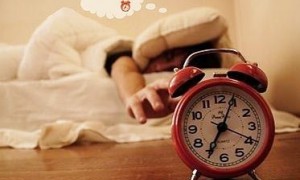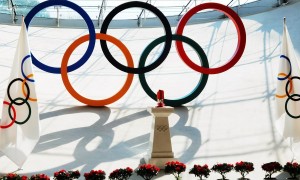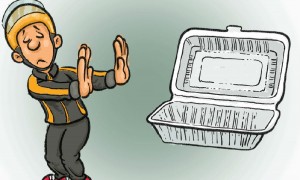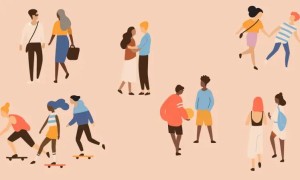世界最穷总统 全部财产仅为一辆汽车
最近,各国领导人纷纷公布个人财产,现年75岁的乌拉圭总统何塞·穆希卡近日也正式公布自己的身家财产,他的全部财产就是一辆1987年的大众甲壳虫汽车,价值1900美元,可谓是世界最穷总统。
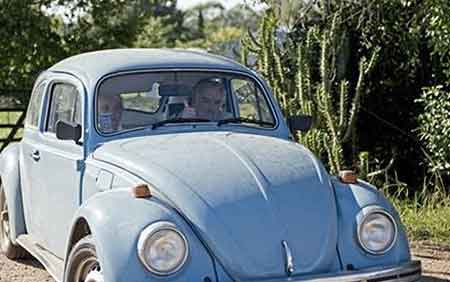
世界最穷总统 全部财产仅为一辆汽车
据乌拉圭官方公布的个人财产报告显示,何塞·穆希卡总统除了一辆1987年的大众甲壳虫汽车外,名下没有其他财产,甚至没有银行账户,没有积蓄也没有债务。
乌拉圭第一夫人卢西亚托波兰斯基名下有一个小花卉农场,一辆拖拉机和其他的种花设备。她说:“我们是那种老一代的现金使用者,我们没有银行账户或信用卡。”
何塞·穆希卡2009年作为执政党广泛阵线候选人参加总统选举,被称为“穷苦人的候选人”。当选总统后,他表示会继续住在农场,拒绝搬入总统府居住。平时,他还尽量避免穿西装、打领带的正式穿着。作为总统,何塞·穆希卡每月的工资大约为11000美元,但他将20%的工资捐给他所在的党派,其他的大多捐给公共住房项目基金,只给自己留下大约1500美元。每当有空闲时间,他喜欢开着自家的拖拉机,在农场里种花,继续他的农场生活。
Laundry is strung outside the house. The water comes from a well in a yard, overgrown with weeds. only two police officers and Manuela, a three-legged dog, keep watch outside.
This is the residence of the president of Uruguay, Jose Mujica, whose lifestyle clearly differs sharply from that of most other world leaders.
President Mujica has shunned the luxurious house that the Uruguayan state provides for its leaders and opted to stay at his wife's farmhouse, off a dirt road outside the capital, Montevideo.
The president and his wife work the land themselves, growing flowers.
This austere lifestyle - and the fact that Mujica donates about 90% of his monthly salary, equivalent to $12,000 (£7,500), to charity - has led him to be labelled the poorest president in the world.
"I've lived like this most of my life," he says, sitting on an old chair in his garden, using a cushion favoured by Manuela the dog.
"I can live well with what I have."
His charitable donations - which benefit poor people and small entrepreneurs - mean his salary is roughly in line with the average Uruguayan income of $775 (£485) a month.
In 2010, his annual personal wealth declaration - mandatory for officials in Uruguay - was $1,800 (£1,100), the value of his 1987 Volkswagen Beetle.
This year, he added half of his wife's assets - land, tractors and a house - reaching $215,000 (£135,000).
That's still only about two-thirds of Vice-President Danilo Astori's declared wealth, and a third of the figure declared by Mujica's predecessor as president, Tabare Vasquez.
Elected in 2009, Mujica spent the 1960s and 1970s as part of the Uruguayan guerrilla Tupamaros, a leftist armed group inspired by the Cuban revolution.
He was shot six times and spent 14 years in jail. Most of his detention was spent in harsh conditions and isolation, until he was freed in 1985 when Uruguay returned to democracy.
Those years in jail, Mujica says, helped shape his outlook on life.
"I'm called 'the poorest president', but I don't feel poor. Poor people are those who only work to try to keep an expensive lifestyle, and always want more and more," he says.
"This is a matter of freedom. If you don't have many possessions then you don't need to work all your life like a slave to sustain them, and therefore you have more time for yourself," he says.
"I may seem a mad and eccentric old man. But this is a free choice."
The Uruguayan leader made a similar point when he addressed the Rio+20 summit in June this year: "We've been talking all afternoon about sustainable development. To get the masses out of poverty.
"But what are we thinking? Do we want the model of development and consumption of the rich countries? I ask you now: what would happen to this planet if Indians would have the same proportion of cars per household than Germans? How much oxygen would we have left?
"Does this planet have enough resources so seven or eight billion can have the same level of consumption and waste that today is seen in rich societies? It is this level of hyper-consumption that is harming our planet."
Mujica accuses most world leaders of having a "blind obsession to achieve growth with consumption, as if the contrary would mean the end of the world".
But however large the gulf between the vegetarian Mujica and these other leaders, he is no more immune than they are to the ups and downs of political life.
"Many sympathise with President Mujica because of how he lives. But this does not stop him for being criticised for how the government is doing," says Ignacio Zuasnabar, a Uruguayan pollster.
The Uruguayan opposition says the country's recent economic prosperity has not resulted in better public services in health and education, and for the first time since Mujica's election in 2009 his popularity has fallen below 50%.
This year he has also been under fire because of two controversial moves. Uruguay's Congress recently passed a bill which legalised abortions for pregnancies up to 12 weeks. Unlike his predecessor, Mujica did not veto it.
He is also supporting a debate on the legalisation of the consumption of cannabis, in a bill that would also give the state the monopoly over its trade.
"Consumption of cannabis is not the most worrying thing, drug-dealing is the real problem," he says.
However, he doesn't have to worry too much about his popularity rating - Uruguayan law means he is not allowed to seek re-election in 2014. Also, at 77, he is likely to retire from politics altogether before long.
When he does, he will be eligible for a state n - and unlike some other former presidents, he may not find the drop in income too hard to get used to.


